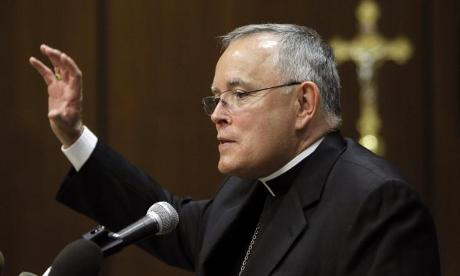A US archbishop has put the collapse of evangelical life in some European churches down to certain pastoral practices on the sacraments.
In an article to be published in the journal First Things next month, Archbishop Charles Chaput of Philadelphia criticised pastoral approaches that ignore the call to conversion.
He wrote about divorced and civilly remarried people receiving Communion when they continue to live together, have sexual relations and haven’t received an annulment.
Archbishop Chaput wrote that the Church doesn’t want to punish such people and doesn’t in fact exclude them.
The divorced and civilly remarried remain welcome members of the believing community, he stated.
But the Church cannot be merciful without being truthful, the archbishop wrote.
“And the truth is, we are called to conversion.
“A pastoral approach that ignores this truth out of a thinly veiled pastoral despair and accommodationism will result in less faith, not more.”
Archbishop Chaput cited Henri de Lubac’s saying “The one who wants to adapt himself too much risks letting himself be dragged along”.
“Indeed, this is what we see happening in Europe,” Archbishop Chaput continued, “in those churches where the pastoral practice regarding divorce, remarriage, and reception of the sacraments has departed from authentic Catholic teaching.”
“What ensues from an untruthful teaching about and practice of the sacraments is not a more zealous evangelical life but its collapse.”
The Philadelphia archbishop wrote “authentic mercy is evangelical”.
“It proceeds from the belief that God’s grace has the power to transform us.
“Ironically, a pastoral strategy that minimises sin in the name of mercy cannot be merciful, because it is dishonest.”
Archbishop Chaput wrote that: “The moral law guides us toward choices that are life-giving, and true mercy is always intimately linked to truth.
“Indulging our own or another’s flawed choices in the supposed service of mercy defeats mercy’s true goal.”
Archbishop Chaput is a member of the council preparing for the next synod of bishops.
Sources
